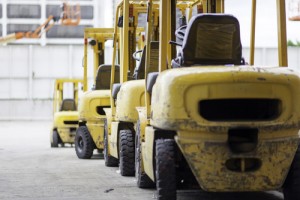 Just last week, the Eastern District of Pennsylvania dismissed plaintiff’s negligence and §402(B) strict liability claims on summary judgment in Morello v. Kenco Toyota Lift, et al. The court reserved dismissal of the §402(A) and related breach of implied warranty claims pending Daubert hearings. This decision sharpens Pennsylvania Courts’ interpretation of §402(A), and reinforces that product manufacturers can still secure summary judgment under Pennsylvania law.
Just last week, the Eastern District of Pennsylvania dismissed plaintiff’s negligence and §402(B) strict liability claims on summary judgment in Morello v. Kenco Toyota Lift, et al. The court reserved dismissal of the §402(A) and related breach of implied warranty claims pending Daubert hearings. This decision sharpens Pennsylvania Courts’ interpretation of §402(A), and reinforces that product manufacturers can still secure summary judgment under Pennsylvania law.
The Morello court specifically addressed whether a forklift seller could be liable for injuries in negligence, strict liability or breach of warranty caused by an industrial forklift which did not include accessories such as lights or chimes when operating in reverse. Plaintiff Morello worked for Jet Plastica and was struck by a forklift sold by Toyota retailer Kenco on July 26, 2007, sustaining an injury to his left leg. He argued that Kenco knew of the optional safety features and plaintiff’s need for them following a visit to his facility where similar forklifts were in use, and had an obligation or duty to educate and inform the buyer that safety features should have been included in the purchase.
The court disagreed. Finding that Morello’s position was based on industry standards, and not Pennsylvania law, Judge Kearney of the Eastern District found that “[a]lthough industry standards are admissible evidence in negligence cases, they do not have bearing on the issue of whether a duty was owed; rather, industry standards are admissible on the issue of the standard of care.” Where there was no duty, the negligence and related claims failed as a matter of law.
The design defect and implied warranty of merchantability claims did not fall so easily. As an initial matter, whether a lack of safety accessories in machinery can constitute an actual design defect was recognized as one of first impression in Pennsylvania. Applying the consumer expectation/risk-utility test, the Court determined that the question of the lack of safety devices was one for the jury. In so finding, the Court explained the development of the law on this issue in New York, pointing out that, under NY law, a product failing to incorporate optional safety equipment would not be defective where evidence and reasonable inferences therefrom establish that:
(1) the buyer is thoroughly knowledgeable regarding the product and its use and is actually aware that the safety feature is available; (2) there exist normal circumstances of use in which the product is not unreasonably dangerous without the optional equipment; and (3) the buyer is in a position, given the range of uses of the product, to balance the benefits and the risks of not having the safety device in the contemplated circumstances of the buyer’s use of the product. In such case, the buyer, not the manufacturer, is in the superior position to make the risk-utility assessment, and a well-considered decision by the buyer to dispense with optional safety equipment will excuse the manufacturer from liability. When the factors are not present, there is no justification for departure from the accepted rationale imposing strict liability upon the manufacturer because it is in the superior position to discover any design defects.
Citing Scarangella v. Thomas Built Buses, 717 N.E.2d 679, 683 (N.Y. 1999). In Morello, the Plaintiff (unsuccessfully) used the fact that his warehouse facility included forklifts with optional safety backup lights and sounds as a basis to attempt to impose negligence and misrepresentation liability. While Judge Kearney reserved his decision on the design defect claim pending the Daubert hearings, his reference to New York law appears to be a caution to the plaintiff. At the very least, it is a helpful guidepost for manufacturers as to how the law in Pennsylvania on this issue is likely to develop.
Defendant Kenco Toyota Lift is successfully represented in this matter by Cozen O’Connor Product Liability team members Paul Leary and Andrea Hammel.

